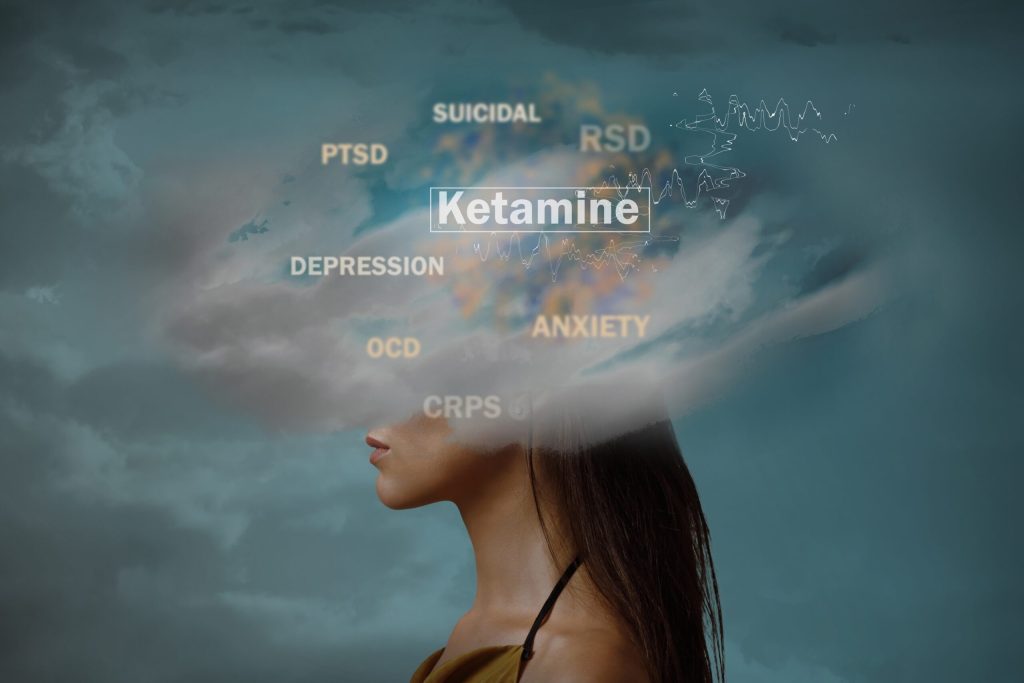When conventional treatments fall short, individuals turn to ketamine treatment for an extra touch of hope. Offering a lifeline to those with depression, anxiety, PTSD, or chronic pain, ketamine’s unique impact on the brain has become a life-changing treatment resource.
Klarisana is your leading ketamine treatment clinic, serving Colorado and Texas residents. Keep reading as we answer one of the most common questions, “What Does Ketamine Do to the Brain?” to understand how this groundbreaking therapy is reshaping the lives of our patients at Klarisana.
HOW DOES KETAMINE WORK?
Ketamine was first used in medicine as a type of sedative, but its current uses go beyond that. Studies have shown that ketamine targets a complex network of receptors in the brain, which is why it can be so effective at treating various mood disorders. At low, controlled doses, it can have a small dissociative effect, which can help patients make discoveries about themselves as they heal from various mental health conditions. It can also help build and repair connections and synapses in the brain, which can help to improve treatment-resistant depression.
DOES KETAMINE DAMAGE YOUR BRAIN?
While utilizing ketamine for treating mood disorders and chronic pain is relatively new, and more research is being completed on its safety, we already know that ketamine treatment can be safe and effective when administered properly. It is essential to complete this treatment with a skilled and knowledgeable practitioner. At low, controlled doses in the proper clinical setting, ketamine therapy is safe and can improve symptoms of many mood disorders and chronic pain.
RISKS OF KETAMINE USE
As with any treatment, especially prescription medication, there are some risks associated with ketamine treatment. It is known to be safe when appropriately administered in a clinical environment but may cause side effects in some patients. Ketamine produces a powerful non-ordinary state of mind, so it is crucial to undergo this treatment with a knowledgeable team of practitioners. If you experience worsening symptoms while undergoing ketamine treatment, discussing this with your provider is important.
HOW KETAMINE AFFECTS YOUR BRAIN
Ketamine affects the brain in several ways, so it can effectively relieve symptoms of treatment-resistant mood disorders and chronic pain. It affects the brain in two primary ways; by changing your neurochemistry and reframing your thought paradigms. Additionally, ketamine treatment can improve mental outlook when combined with cognitive-behavioral and talk therapy.
NEUROCHEMISTRY
Ketamine primarily affects two neurotransmitters; GABA and glutamate. When working correctly, these two neurotransmitters play important roles in reducing negative thought processes and the distressing effects of many mental disorders. Ketamine’s impact on these neurotransmitters is effective at helping decrease depression symptoms, and its effect on GABA, in particular, has shown promising results in potential treatment for OCD (obsessive-compulsive disorder).
NEUROPLASTICITY
While ketamine’s ability to improve mood can provide immediate relief from depression and other distressing symptoms. It takes advantage of the brain’s neuroplasticity to help patients remodel their thought patterns and see the world in a different way. Those who deal with mental distress often have negative self-talk and a counterproductive thought paradigm regarding themselves and the world in general. Ketamine, especially when combined with therapy and positive affirmation work, can leverage a patient’s inherent neuroplasticity to allow them to remodel their subconscious view of themselves and the world they live in.
CAN KETAMINE CAUSE YOU TO HALLUCINATE OR DEVELOP PSYCHOSIS?
Since ketamine was once considered a “party drug” in unauthorized settings, there are many misconceptions about the many positive things it can be used for in a clinical setting. As such, many people assume it is a hallucinogenic drug capable of producing the same hallucinations that those who struggle with psychosis deal with, but this is not true.
A better way to define ketamine is as a psychedelic. Ketamine and other psychedelics can induce a non-ordinary state of consciousness, which can cause patients to enter a dream-like state, which is different than experiencing hallucinations. This dream-like state can provide insight and allow patients to see their situation differently.
KETAMINE TREATMENT FOR ANXIETY, PTSD, DEPRESSION, AND CHRONIC PAIN
If you’re considering ketamine therapy for anxiety, depression, PTSD, or chronic pain, you must go to a trustworthy provider. At Klarisana, our providers work with you to discover if ketamine treatment can help to manage the symptoms you’re experiencing. Contact us today to see if ketamine therapy is right for you.
Image source: Pavlova Yuliia on Shutterstock





